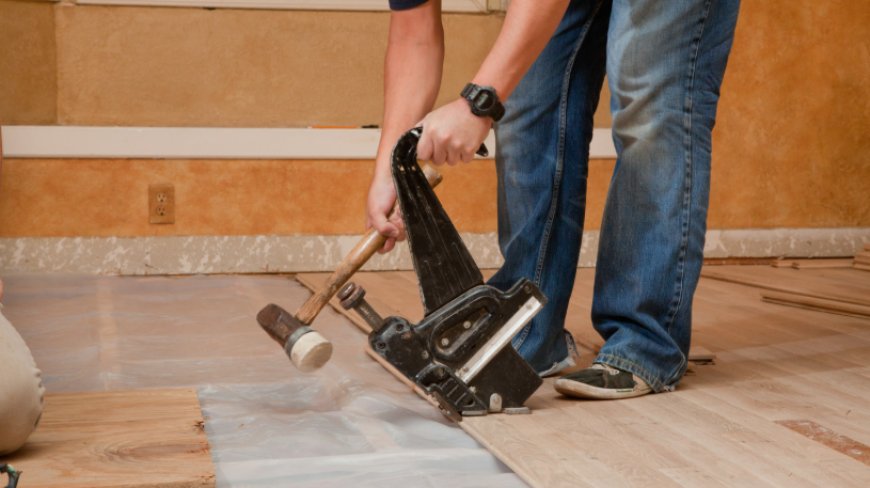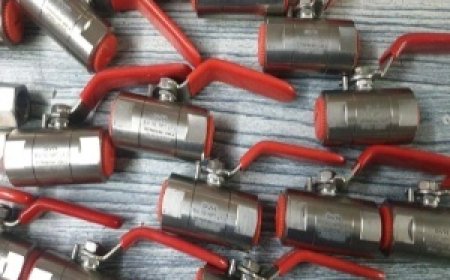Installing Durable Flooring for High-Traffic Entryways
Discover the best durable flooring options for high-traffic entryways. Learn installation tips and maintenance advice with help from Cyndi’s Floors N More.

Your entryway is the first impression guests get of your home and the first place to take a beating from muddy shoes, heavy boots, pet paws, and more. Thats why installing durable flooring in high-traffic entryways is a smart investment. But which flooring type should you choose? What should you consider during installation? And how can you ensure it holds up for years?
In this guide, well walk you through the best materials, prep tips, and installation steps to help you get the most out of your flooring project. Whether you're a homeowner upgrading your foyer or a contractor looking for entryway solutions, this blog has all the practical info you need brought to you by the experts at Cyndis Floors N More.
Why Durability Matters in Entryway Flooring
Entryways are some of the busiest spots in any home or business. These areas deal with:
-
Heavy foot traffic
-
Dirt, debris, and water
-
Temperature fluctuations
-
Scratches from shoes, furniture, and pets
Durable flooring in these areas doesnt just improve aesthetics it reduces maintenance, prevents damage, and increases the longevity of your flooring investment. Choosing the wrong type of floor could result in early wear, warping, or frequent repairs.
Top Durable Flooring Options for Entryways
When shopping for entryway flooring at Cyndis Floors N More, here are some excellent options to consider:
1. Luxury Vinyl Plank (LVP)
-
Pros: Water-resistant, scratch-resistant, mimics hardwood, budget-friendly
-
Ideal for: Families with kids and pets
-
Durability: High especially wear-layer-enhanced versions
LVP is one of the most popular flooring types for high-traffic areas. Its designed to handle moisture and scratches while offering the warm appearance of wood.
2. Ceramic or Porcelain Tile
-
Pros: Waterproof, hard, easy to clean, highly durable
-
Ideal for: Mudrooms, homes in wet or snowy climates
-
Durability: Extremely high
Tiles can handle nearly anything you throw at them or on them. They're a go-to for those wanting toughness and timeless beauty.
3. Natural Stone (Slate, Granite, Travertine)
-
Pros: Long-lasting, elegant, naturally textured for grip
-
Ideal for: Upscale homes or rustic aesthetics
-
Durability: High, but requires sealing
Natural stone looks luxurious and adds real estate value, but youll need to seal it regularly to protect from stains and moisture.
4. Engineered Hardwood
-
Pros: Real wood veneer with added stability, resists warping
-
Ideal for: Homeowners who love a natural look
-
Durability: Moderate to high depending on the topcoat
Engineered hardwood gives you the beauty of solid wood without the vulnerability to moisture but it may scratch more easily than tile or LVP.
5. Laminate Flooring
-
Pros: Budget-friendly, stain-resistant, easier to install than hardwood
-
Ideal for: DIYers and budget-conscious families
-
Durability: Moderate great if kept dry
Look for high-AC-rated laminate (Abrasion Class 3 or higher) for best performance in high-traffic zones.
Factors to Consider Before Installing Entryway Flooring
At Cyndis Floors N More, our team always recommends evaluating your space before committing to a flooring type. Here are a few key factors:
1. Moisture Resistance
Entryways are often exposed to wet shoes and umbrellas. Water-resistant flooring like tile or LVP is a must in these scenarios.
2. Slip Resistance
Safety matters especially in homes with elderly family members or children. Choose textured surfaces or slip-resistant coatings.
3. Scratch Resistance
Dogs, strollers, furniture, and high heels can all damage softer materials. Opt for hard finishes or thicker wear layers for added protection.
4. Maintenance Requirements
How much time are you willing to spend on upkeep? Some floors (like tile or LVP) are low-maintenance. Others (like hardwood or stone) require regular cleaning and sealing.
5. Design & Aesthetics
Your entryway sets the tone for your whole home. Look for flooring that complements your decor while staying functional.
Step-by-Step Guide: Installing Durable Entryway Flooring
Once you've chosen the right flooring material, it's time to install it. Heres a general step-by-step guide to help ensure your project goes smoothly:
Step 1: Measure the Area
Use a tape measure to determine the length and width of the space. Dont forget to account for closets or corners.
Tip: Add 10% to your total square footage to allow for cuts and waste.
Step 2: Prepare the Subfloor
-
Remove old flooring
-
Clean thoroughly
-
Check for moisture issues
-
Ensure it's level and stable
A clean, dry, and even subfloor is essential for long-lasting results.
Step 3: Acclimate the Materials
Let your flooring materials sit in the entryway space for 4872 hours. This allows them to adjust to the rooms temperature and humidity.
Step 4: Install Underlayment (If Needed)
Depending on your flooring type (like laminate or LVP), you may need a moisture barrier or cushioning underlayment.
Step 5: Lay the Flooring
Follow the manufacturers instructions. Typical guidelines include:
-
Start in one corner of the room
-
Use spacers near the wall for expansion
-
Stagger joints for a natural look
-
Use the proper adhesive or locking system
Pro tip from Cyndis Floors N More: Use a flooring installation kit for easier tapping and alignment.
Step 6: Add Finishing Touches
-
Install baseboards or shoe molding
-
Caulk edges if needed
-
Clean the surface
-
Let the floor set before heavy traffic (2448 hours)
Maintenance Tips to Keep Entryway Floors Looking New
Durable doesnt mean indestructible. Here are tips to make your new floor last even longer:
-
Place doormats outside and inside the entry
-
Use boot trays in winter or rainy seasons
-
Sweep or vacuum frequently to remove grit
-
Clean up spills immediately to prevent staining
-
Add felt pads under furniture or coat racks
At Cyndis Floors N More, we also recommend sealing grout or stone as needed and checking for wear once a year.
Why Choose Cyndis Floors N More?
Choosing the right flooring store can make or break your installation experience. Here's what sets Cyndis Floors N More apart:
-
Extensive selection of durable flooring materials
-
Expert consultations to guide your product choice
-
Professional installation services
-
Customer-first approach and local community trust
-
Affordable pricing with financing options
Whether youre renovating a single foyer or designing your dream home, our flooring pros are here to help every step of the way.
FAQs
1. What is the most durable flooring for an entryway?
Luxury vinyl plank (LVP) and porcelain tile are among the most durable and water-resistant flooring types for entryways. They stand up well to high traffic, moisture, and daily wear.
2. Can I install entryway flooring myself?
Yes! Many flooring options like laminate or click-lock vinyl planks are DIY-friendly. Just be sure to prep your subfloor properly and follow the installation guide provided by the manufacturer or consult with experts like those at Cyndis Floors N More.
3. How do I protect entryway floors from damage?
Use indoor and outdoor mats, clean regularly, avoid dragging heavy furniture, and use protective pads under items. Consider adding a rug runner for extra protection in extra-busy spots.
Final Thoughts
Your entryway deserves flooring that can stand up to daily life and look good doing it. Whether youre dealing with snowy boots, muddy paw prints, or constant foot traffic, choosing the right material and installing it properly makes a huge difference.
By selecting a durable, stylish option from Cyndis Floors N More, youre not just protecting your investment you're creating a space thats welcoming, resilient, and easy to maintain for years to come.
Need help finding the perfect flooring for your entryway?
Stop by Cyndis Floors N More or schedule a consultation today. Our flooring experts are ready to help you choose, plan, and install the floor that fits your lifestyle perfectly.


































